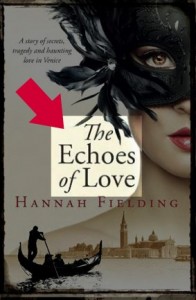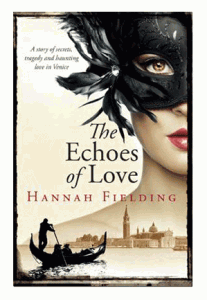The thinking behind book titles
The thinking behind book titles
The thinking behind book titles
-
Hannah
-
Hannah
 The cover of a book must be beautiful, the blurb must be compelling, the first page must pull the reader in and make him or her want more – but above all, the title must be perfect. In no more than a few words the author must:
The cover of a book must be beautiful, the blurb must be compelling, the first page must pull the reader in and make him or her want more – but above all, the title must be perfect. In no more than a few words the author must:
- Showcase his or her writing style.
- Encapsulate the mood of the book.
- Convey the main theme of the story.
For some authors the title is the hardest thing to write, taking longer to shape than an entire chapter; for others the ideas come thick and fast. Often a manuscript has a working title, but it changes several times before publication. Other authors start out with a title in mind, and stay loyal to that throughout. (Unless the publisher insists on changing it, which is fairly common.)
The reason for all the difficulty is that different styles for titles exist, and determining which to use for a book is not always straightforward. So far in my novels I’ve used three different approaches for the title.
The title that ties into a scene
 Inspiration for my debut novelcame from many sources. Much of the story was in my mind: I daydreamed and researched and plotted and planned, and finally I was ready to write. All that was missing to pull the threads together was a title. Then, one evening, my family and I were sitting around a campfire in the garden, and I was gazing at the incandescent embers. The fire was smouldering quietly, giving out a strong glow, just like the passions locked within Coral and Rafe. Embers that could ignite into fire, but also, if untended, die out. The title Burning Embers was born.
Inspiration for my debut novelcame from many sources. Much of the story was in my mind: I daydreamed and researched and plotted and planned, and finally I was ready to write. All that was missing to pull the threads together was a title. Then, one evening, my family and I were sitting around a campfire in the garden, and I was gazing at the incandescent embers. The fire was smouldering quietly, giving out a strong glow, just like the passions locked within Coral and Rafe. Embers that could ignite into fire, but also, if untended, die out. The title Burning Embers was born.
Heat permeates the novel, through the backdrop of Kenya and the attraction between the protagonists, so that the notion of burning embers resonates throughout. But I decided to write the phrase into the book as well, because I wanted to really tie together the burning embers to Coral and Rafe:
Though the afternoon sunshine was beginning to fade, the air was still hot and heavy. Coral was struck by the awesome silence that surrounded them. Not a bird in sight, no shuffle in the undergrowth, even the insects were elusive. They climbed a little way up the escarpment over the plateau and found a spot that dominated the view of the whole glade. Rafe spread out the blanket under an acacia tree. … They chatted casually, like old friends, about unimportant mundane things, as though they were both trying to ward off the real issue, to stifle the burning embers that were smoldering dangerously in both their minds and their bodies.
The title that draws on a literary quotation
 Quoting from literature is a long-standing tradition for authors. Here are some examples:
Quoting from literature is a long-standing tradition for authors. Here are some examples:
- A Passage to India: a quote from Leaves of Grass by Walt Whitman
- As I Lay Dying: a quote from The Odyssey by Homer
- For Whom the Bell Tolls: a quote from Meditation XVII by John Donne
- From Here to Eternity: a quote from Gentlemen-Rankers by Rudyard Kipling
- His Dark Materials: a quote from Paradise Lost by John Milton
- I Know Why the Caged Bird Sings: a quote from Sympathy by Paul Laurence Dunbar
- No Country for Old Men: a quote from Sailing to Byzantium by William Butler Yeats
- Of Mice and Men: a quote fromTo a Mouse by Robert Burns
- Tender Is the Night: a quote from Ode to a Nightingale by John Keats
- Vanity Fair: a quote from The Pilgrim’s Progress by John Bunyan
- Where Angels Fear to Tread: a quote from Essay on Criticism by Alexander Pope
Regular readers of my blog will know I love quotations, and so it is natural for me to take inspiration from my readings of literature. For The Echoes of Love, I drew on two quotes that were in my mind as I wrote the book:
‘Footfalls echo in our memory/Down the passage which we did not take…’T.S. Eliot
‘Multitudinous echoes awoke and died in the distance . . . And, when the echoes had ceased, like a sense of pain was the silence.’ – Henry Wadsworth Longfellow
These quotes form the epigraph to the book, to further cement the meaning of the title.
The single-word title
There’s a powerful simplicity in selecting only one word to stand as a title. It’s brave, it’s bold –it says, ‘Here’s what this book is all about.’
Some one-word titles push forth the central character, like Emma and Carrie. Others convey the theme, like Persuasion and Atonement. There are those carefully chosen to intrigue, like It and Holes and Room. And those that don’t have a great deal to do with the plot of the book but create a mood, like Twilight.
For my forthcoming novel, my publisher encouraged me to consider a one-word title, and I was keen to give this a try, because I think the style will tally well with the fiery spirit in the book. After some brainstorming I settled on…
… well, watch this space for the cover reveal for my new novel, coming very soon!